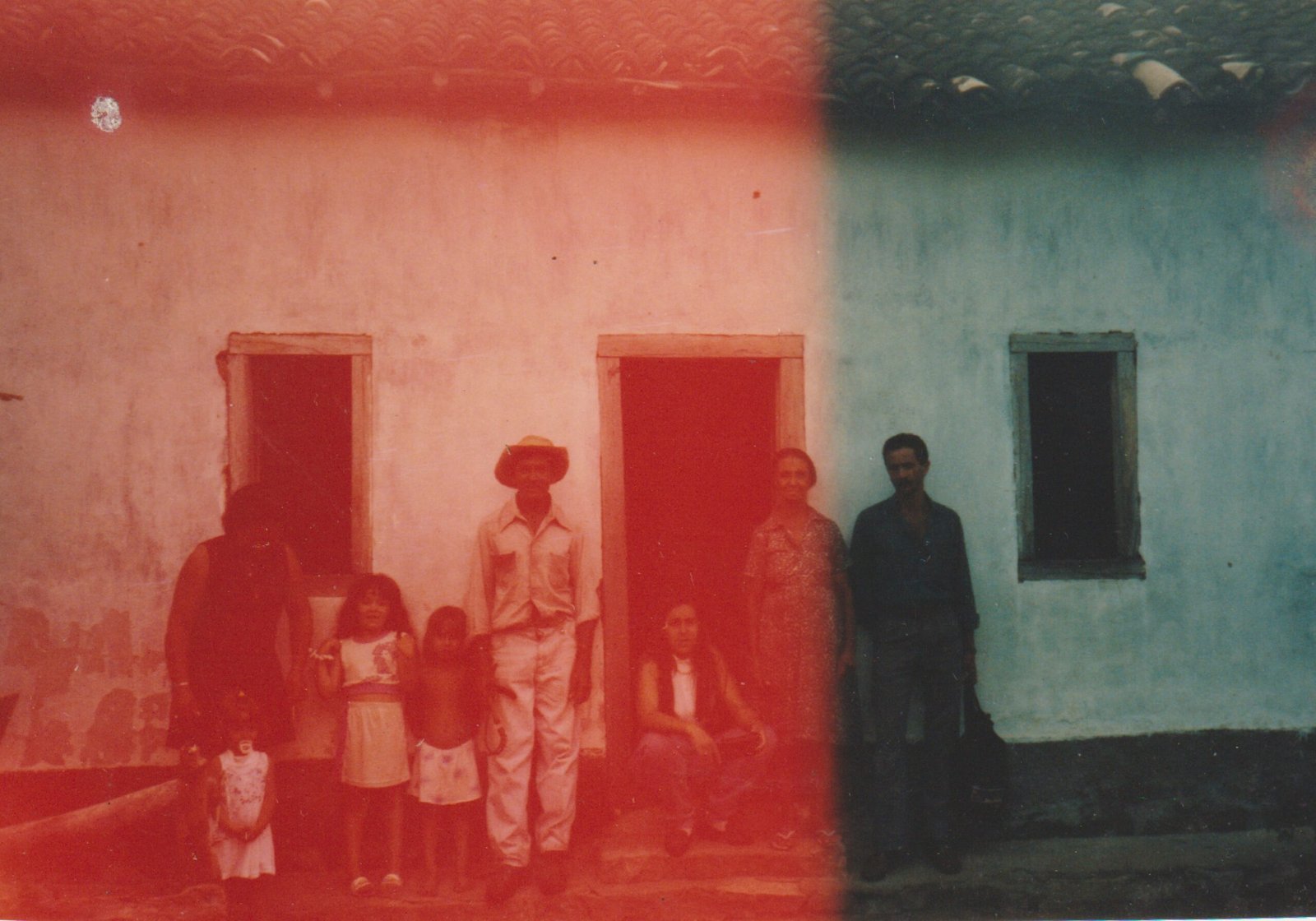If there’s any city on this planet that seems to tap into every single human emotion at its most extreme all at once, it’s the megalopolis of São Paulo in Brazil. An unforgiving, sprawling slab of concrete deposited upon a thick Atlantic forest, the city rises up from the soil like the work of a deranged lunatic. Graffitied overpasses and massively stark condominiums abut against the urban detritus of the oppressed, while billionaires fly from the coast to the city in helicopters like vultures circling the spoils. As the largest city in the Western hemisphere, it’s a veritable hodgepodge of cultures and ideas, and this diversity has spurned an explosion of Lovecraftian creativity over the years. They say New York City never sleeps, but if that’s so, then São Paulo is its ugly brother – bigger, stronger, meaner, and all hopped up on ketamine, cocaine, and cachaca. It’s wildly eclectic, as if it’s about to burst from the Earth into outer space like some macabre generation starship. And if that would ever happen, then the music of Gloios, the gorgeously chaotic one-man project of Rafael Xavier, would be an apt soundtrack.
Like São Paulo itself, the music of Gloios exists in a unique space. Xavier takes bits and pieces from all over the musical spectrum and puts them together much in the way the city itself was arranged. One thing is placed on top of the other, and while on paper it may not seem to make sense, the final product is something wildly exceptional. His new album Polvorosa is a psychedelic pursuit of emancipation, of being freed from the shackles of anxiety that this modern world exerts. Indeed, much of Gloios‘s discography deals with the intensity of living a life in a city that forces you to live it at it’s most extreme.
‘LIDE (2022) was an album about distance, Natureza Errada (2024) was an album about death and Polvorosa is an album about anxiety. These are clear, but some of the “deep” ideas are quite unclear, intentionally. It’s a kind of Lynchian way to compose music, full of this stream of consciousness. It’s just a very intimate thing, more than being mysterious.‘
The music of Gloios exists in this Eraserhead world, an uncategorizable conglomeration of sounds that makes for an exhilarating listen. Polvorosa was released in June, and was quickly chosen as one of the best albums from that month by EIN, and deservedly so. The album creates a world in which agitation, trepidation and nervous energy all co-exist in a way that makes it seem as if life is just one insurmountable challenge after another. Largely instrumental, with occasional vocals and spoken word buried within the mix, Xavier manages to create a collage of controlled cacophony. Leading off his latest album is “Beberomoto”, which loosely translated means ‘dead drunk’, but in the world of Gloios, it becomes a way of honoring our ancestors.
‘”Beberomorto” comes from a Northeastern (Brazil) expression which means like ‘to drink the dead’. It means to drink cachaça (alcohol) in homage to a dead person – an almost ritualistic way to remember them in a way.’
Xavier’s relationship to music is fused through his roots, and those roots give rise to the sturdy hardwood that acts as a foundation for the songs. In addition to elements of blackgaze and metal, post-rock and electronica, ambient, and psychedelia, Xavier incorporates the rhythms of Northeastern Brazil in his music as well. After all, for such an astonishingly unique approach to music to occur, the sounds that fueled that creative ambition must be far and wide. When asked about his inspirations, Xavier says:
‘My life was always permeated by music. I grew up with my aunt’s radio playing sertanejo music (a kind of Brazilian folk music, heavily focused on rural lifestyle), old videogame soundtracks (Donkey Kong Country‘s trilogy, Super Mario World, Streets of Rage, etc) and pop music. Eventually I started to get into rock with bands like Aerosmith, System of a Down, Korn, Slipknot, then extreme metal, hip-hop music, indie music, MPB, samba, and jazz, until I came to a point I realized that genres weren’t really important. I was always pretty interested in music in general and I guess I took some time to perceive it.‘
Xavier started writing music in high school, tapping into these inspirations and more to create a sound that emulates the urgency of black metal without being metal. Gloios exists on this spectrum, but when mashed up with all of the other influences, you’ll find songs that seem to fit an entire history of popular music into a single composition. He continues in his discussion about influences:
‘Gloios as an idea started when I was a teenager. The project was always based on dichotomy: my idea was to mix prettiness with ugliness, quoting the Brazilian author Clarice Lispector: ‘the ugliness is my war standard‘. I used to compose everything on a single acoustic guitar and my musical ideas were pretty generic blackgaze, inspired by the works of bands like the ones who worked on the compilation The World Comes to an End in the End of a Journey. This kind of music made a huge impact on me. Fortunately, I started dissolving more of my general influences in my music, so things started getting more and more experimental and unique before I officially released an album, mixing more of the variety of my influences.
It’s tough to mention artist or bands that inspire me though, but I could mention a really weird salad of things like Sigur Rós, Godspeed You! Black Emperor, Zé Ramalho, Milton Nascimento, Björk, Mogwai, Metá Metá, André 3000, Nelson Cavaquinho, Caifanes, Charli XCX and more. Even a lot of metal from my teenage years like Neurosis, Death, Gojira, Deafheaven, etc. My music is also heavily inspired by Brazilian Northeastern culture and music, so I work with a lot of xote, baião and forró music, genres very popular in where all my family comes from.‘
These influences all seem to show their faces on Polvorosa‘s final two songs, “Desenganado” and the title track. The former is an ambient journey through time that seems to surge and pulsate through a simple repetitive melody. On its surface, the word ‘desenganado‘ means ‘disillusioned’, but according to Xavier it’s one of those words that’s not always easily translated from one language to another.
‘It’s usually associated with death,’ Xavier says, ‘like when a person receives a terminal diagnosis and then they’d immediately feel ‘desenganada’.’ It’s music that bridges these barriers of language. It’s music that allows us to find a synergy between our feelings without words, and this is what Gloios has done so magically. The nuances of feeling sometimes are constrained by the combinations of letters; however, when those feelings are communicated in the form of sounds, nothing is ever lost in translation.
As for “Polvorosa”, Xavier writes the following:
‘“Polvorosa”, the title track, means like a messy, chaotic, noisy situation (something that summarizes the whole album for me) and is one of my most hopeful songs yet. It’s an almost fantastical song in which I evoke this urge that is always repeating itself until it becomes something at the end. It’s like looping thoughts until you gotta do something and it has this maximalist approach.’
In English, the word’s literal translation is ‘dusty’, and the music that Xavier composes most certainly exists in this haze. It’s not that Gloios defies genre; it’s that it exists within this cloud of molecules that makes it sometimes hard to define what is actually happening. Like São Paulo itself, the music of Gloios is all things at once. It’s impossibly big, a victim of it’s own internal and external weight, a volatile history of over five hundred years reaching its natural conclusion. Xavier lives within the ‘hoods of the city‘, as he describes them, and the sounds of the Paulistanos, literally and metaphorically, infuse the music with a cultural energy that’s both invigorating and intimidating.
‘I gotta say São Paulo, the whole city, is a really special place for me. I live in the hoods of this city and I usually take a long time to get into places. São Paulo is such a chaotic city – it’s constantly giving me ideas to work with artistically. I’m always recording preachers of the apocalypse, sellers with curious things to say, people giving public speeches about a lot of different subjects. Some of these speeches can be easily found in the Gloios discography – Linha Chilena, Arbus, Cadafalso. If you’re walking through São Paulo or taking the public transport on a daily basis, there are high chances you’re listening to this kind of thing. And also high chances I’ll be hidden behind the curtains recording them to use on Gloios.‘
The magic of Gloios exists in this space behind the curtains. Through Xavier’s thoughtful compositions, he’s been able to give the streets of São Paulo a voice that lives beyond the expected. He acknowledges the rich history of Brazilian culture within his music, however subtle that may be, and gives the unheard a makeshift pulpit upon the sidewalk. Nestled between vendors selling street beers, botecos sprawling out onto street corners, and the impossibly cool hipsters of Pinheiros are these ‘preachers of the apocalypse’, one of whom has produced one of the best albums of 2025. Rafael Xavier’s Gloios is a way of inviting us all under the revival tent to let us know that the anxiety we feel is a shared by everybody, so we might as well enjoy it. After all, if this is the only chance we get at living, we may as well gather up as much life as we can before we go.

Gloios is:
Rafael Xavier – Everything and the kitchen sink.
You can follow Gloios on Instagram and buy their music on Bandcamp. Xavier will be debuting the band live at Cafundo in São Paulo on August 22, so if you happen to be in the Western hemisphere’s most populous city at the time, buy a ticket and cheer him on!






